Search engine optimization (SEO) is the most powerful digital marketing tool on the internet. It can generate traffic as well as sales. Every day thousands of people are working for getting rank their websites on Google. In this article, I have shown how to do search engine optimization. It is a complete guideline for beginners on SEO.
Before starting about search engine optimization (SEO), let’s see how a search engine works:
How Search Engine Works
Naturally, people search for some piece of information on search engines. The search engine shows the 10 best results on each SERP (search engine result page).
Now the question is how a search engine finds the best results.
Every search engine has three primary functions:
- Crawling
- Indexing
- Ranking
Crawling
Crawling is a discovery process. Search engines send their robots to find new and updated content. Content can be an article, image, video, PDF, animation, etc. The content discovers by links.
Indexing
Every search engine has a very big database where they keep all information about the content they find on the internet. This is called indexing.
Ranking
When searchers search for a piece of information on the search engines, they provide the best relevant results to the searchers. This ordering of search results by relevance is known as ranking. In general, we can say that the higher-ranked webpage is more relevant and trustworthy to the search engines.
What is SEO?
Search engine optimization (SEO) is the process that you can get the ranking of your keywords on the 1st page of SERP.
When searchers search for any piece of information, the search engines show the most relevant results on its SERP. Making the webpage most relevant is called SEO (search engine optimization)
SEO is the process of optimizing your online content so that the search engines like to show it on the 1st page of their SERP.
Why You Need SEO for Your Website?
In every second, 60 blog posts are published online. That means over 5 million in a day. If you want to succeed in blogging or online business, you need to do SEO for your website. Let’s see what you can get from SEO:
- You can get more organic traffic
- Easily you can reach your targeted audiences
- Sales conversion is higher as you are getting more organic traffic
- You don’t need to spend money on advertising
- It becomes more trustworthy when your keywords are ranking on the 1st page of the search engines.
- It can give you brand image as your keywords are ranking on the 1st page of the search engines
- SEO can boost your website’s credibility and authority.
- It can boost the user experience.
How to do Search Engine Optimization?
Search engine optimization or SEO is technical work. It is not very hard. You can also do SEO of your own website or you can be an SEO expert or SEO professional after learning SEO. In this article, I will show you all the steps of SEO so that you can learn SEO and can become an SEO expert.
We can divide SEO into three major parts:
- On-page SEO
- Technical SEO
- Off-page SEO
On page SEO
It is an important part of search engine optimization. Through on-page SEO visitors can get a better user experience. It is the practice of optimizing webpage content for search engines and users. On-page SEO contains optimizing title tag, content, internal links, URL, Meta description, etc.
Why On Page SEO is Important?
On-page SEO is still now the most important part of SEO. As the search engines show the most relevant search result on their SERP, so you can get ranked through on-page SEO.
Properly doing on-page SEO means optimizing title tag, content, Meta description, etc. When you will optimize your title, content, Meta, URL, and internal links, search engines will get the most relevant content when searchers perform a particular search.
How to do On Page SEO?
For on-page SEO, you have to optimize your title, content, Meta description, URL, and internal links. You have to work on the following points for optimizing on page:
- Keywords Research
- Unique and informative content
- Content decoration
- Optimizing URL
- Develop proper internal linking
- Optimize Meta description
Keywords Research
It is one of the most important parts of on-page SEO. Without the right keyword research, your other on-page SEO works can go in the wrong direction.
Example: Your website is about home improvement. You are writing a blog about custom kitchen design. Here you have chosen the keyword “Custom Kitchen Design – Step by Step Guide” and after publishing your unique article you get ranking on the 1st page of SERP. But searchers never search this keyword on Google. So, you will never get any traffic using this keyword. There is no value if you have no traffic and your keywords are positioning no.1.
You need to find out the keywords that have some search value and are low in competition. Keywords research is the one and only way to find the proper keywords that have some search value and low competition.
There are many tools for keywords research, followings are the most uses tools for keywords research:
- Ahrefs
- Moz
- Semrush
- Keywords Everywhere
- Ubersuggest
Using the above tools you will find the keywords, their search value, competitors’ authority, competitors’ backlinks, etc.
Unique and Informative Content
It is said that content is the king. When people search for something on the search engines, search engines want to show them the best results. So, if your content is copied or plagiarized, search engines will never like your content and your blog or keywords will never get ranking on the 1st page of the search engines.
Example:
There are only 4-5 recipes for cooking rice. All recipes are the same all over the world. But there are thousands of blogs that have rice cooking recipes articles. In these articles their writing techniques are different. Maybe all information is the same as there are very few rice cooking recipes, but due to unique writing techniques, search engines show those articles in their SERP.
Your article should be enough informative so that, traffic gets benefits from your blog.
When traffic finds unique and informative content, they will spend time reading the blog. The search engines always give priority to the content quality and how the traffic behaves. If they found that traffics is spending their time on the content, the search engines will give more priority to show your content to their SERP.
Content Decoration
Content decoration plays an important role in on-page optimization. When the traffic finds only some written documents in a blog, after sending a few seconds, they will not enjoy it.
You can decorate your content with some relative images, infographics, audio, and video files. Traffic will spend more time when they find some related images, infographics, audio, and video content.
When traffic spends more time on your blog, the search engines will give more priority to give ranking on their SERP.
Optimizing URL
URL optimizing is another important part of on-page SEO. There are many types of URLs you can see on the internet. All URLs are not optimized and good for SEO. URL always should be in short form and should contain primary keywords.
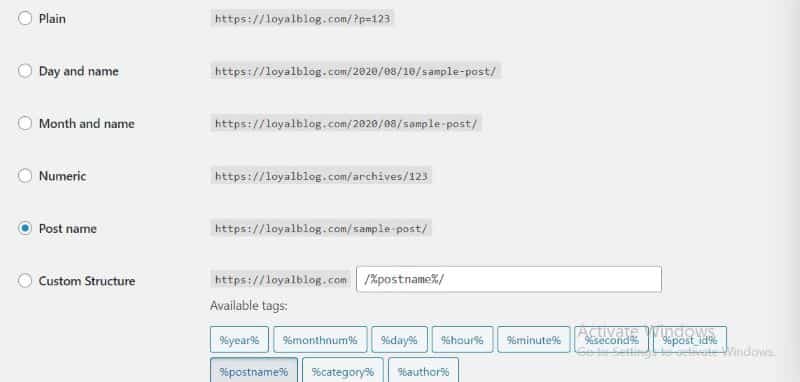
Example:
If your website is a blog or e-commerce website, then your URL should contain focus keywords. When the keywords are long-tail, in that case you can insert the only primary keywords.
If your website is a news website, in that case, you can add the article/news publishing date into your URL. But if you don’t use the publishing date in the URL, it will be no issue for SEO.
Develop Internal Linking
Internal linking plays a vital role in search engine optimization. Building the internal linking is a technique. When you know this technique, your search engine optimization work be easy. But, if you don’t know the internal link-building technique, then the SEO work will be difficult for you.
You can follow the below techniques for building internal linking:
- Build both way links
- The link between the related articles.
- Always take link juice from high authority to low authority, but the category must be the same.
- Always make linking with your home page.
Optimized Meta Description
The meta description is the short description of your content. Here you should describe your blog or eCommerce product or business. The meta description should be within 150 characters. It should contain your focus keywords and if possible secondary keywords also.
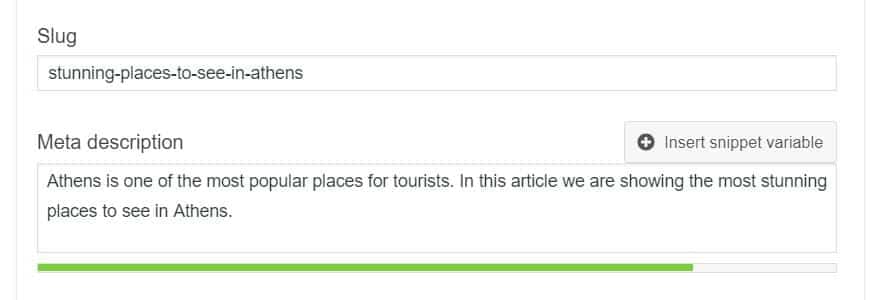
Technical SEO
Technical SEO is an important part of search engine optimization and it plays a vital role in getting the rank of the keywords on the 1st page of the search engines.
Core web vitals is an initiative by Google. Google considers some factors are important for the website user experience or UX.
There are hundreds of ranking factors that Google considers for ranking a website. Core web vitals is one of the ranking factors that Google considers very important in 2024.
Many factors included in the Google core web vitals, such as
- largest contentful paint,
- first input delay,
- cumulative layout shift.
Largest Contentful Paint
It measures your webpage load speed. If you want to give a quality user experience, your website should perform within 2.5s. If your webpage can’t load within 2.5s, your website needs improvement in the LCP (Largest Contentful Paint). When your website or webpage requires more than 4s to load, that means your LCP (Largest Contentful Paint) is poor.
First Input Delay
As per Google, first input delay or FID means when a user or visitor first interacts with the website (when they clicked a link, tapped on a button, and so on) to the time when the browser responds to that interaction. This measurement is taken from whatever interactive element that the user first clicks. This is important on pages where the user needs to do something because this is when the page has become interactive.
Your website FID score should be within 100 MS (milliseconds) for quality user experience.
Cumulative Layout Shift
Cumulative layout shift measures visual stability. If your website’s CLS score is 0.1 or less, that means your website is performing well and it is user-friendly.
You have to do the following for technical SEO and core web vitals:
- Improve website load speed
- Make the website mobile friendly
- Image optimization
- Structured data
- Generate XML sitemap
- Generate Robots.txt file
- Connect with Google Search Console
Improve Website Load Speed
Website load speed is an important part of technical SEO. If your website has very good content and your all other optimizing works are doing well, but load speed is slow, then you can’t get ranking and you will lose the keywords that are ranking on SERP.
How to Improve Website Load Speed
You can follow the below points to improve your website load speed:
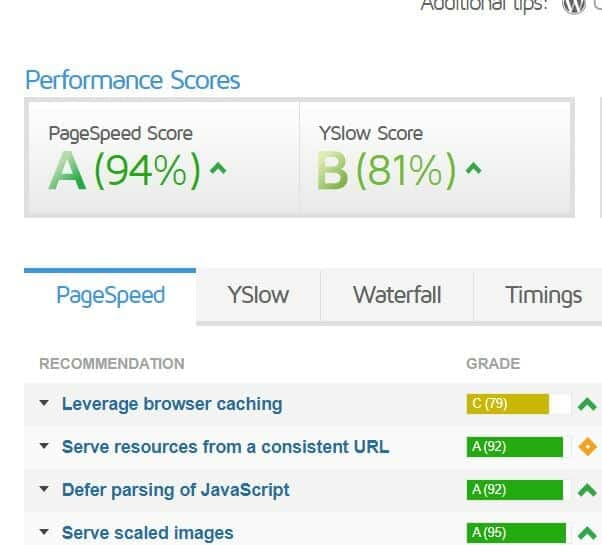
- Reduce JS files as much as you can
- Remove unwanted CSS files
- Compress all your image files
- Reduce images size
- Remove all 404 URLs
- Remove all 301 redirects
All the above steps will help you to increase website load speed.
Make the Website Mobile Friendly
In 2020 65% of total searches are coming from mobile. Without a mobile-friendly website, you will never get a ranking on SERP. Making a website mobile-friendly is not very difficult for WordPress sites. Naturally, the new version of WordPress themes is mobile-friendly. If you find that your theme is not supporting mobile, then just install the AMP plugin on your site. AMP plugin will convert your website to a mobile version.
Image Optimization
Image optimization can improve your overall site performance. You can follow the below steps to optimize your images.
- Use a particular image size for all your feature image
- Give an image title and that should be matched with the post title
- Use tags to your images
- Provide a proper Alt text that can say about your image
- Provide a caption for your image
- Insert your post URL into your image so that when anyone clicks on the image, it goes to the post
- If your website is a blog you should use JPG format images
- You can use the image compressor plugin to compress the images
All the above steps will improve your overall site performance, CTR, and load speed.
Structured Data
Structured data is a model of data that describes your post or content. It is easy to understand and well organized. Any human and robot should read the structured data and can understand the content.
How to Write Structured Data
Structured data is an HTML code. You can use structured data plugins for a WordPress website. Just input the data in the form of the plugin and it will generate structured data. You can check your structured data through Google’s structured data checker. If you find any error, you have to change the data through HTML code.
Generate XML Sitemap
XMLsitemap.org generate XML sitemap. Your XML sitemap URL should be https://yourdomain/sitemap_index.xml. Naturally, SEO plugins have XML sitemap generate options. You can use SEO plugins or an online XML sitemap generator for generating your sitemap. After generating an XML sitemap, you have to submit the sitemap link to the search console.
Connect Your Website to Google Search Console
Connect your website to the Google search console when it is completely ready for publishing. It is not very difficult to connect to the search console, just follow the below steps:
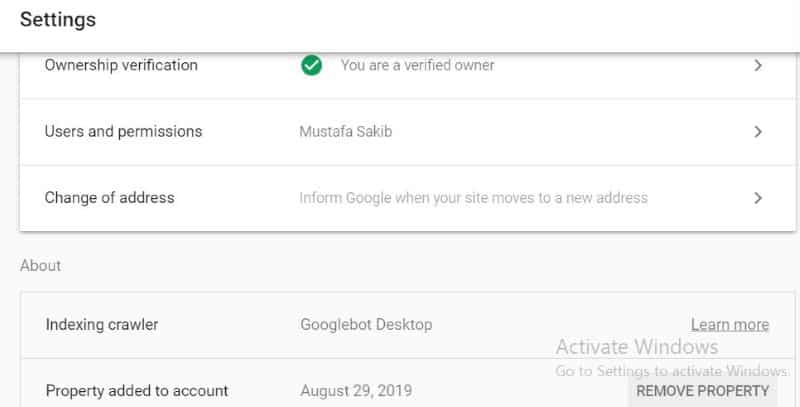
- Login to your search console account with the mail address you have used to buy the domain and hosting.
- Go to ADD PROPERTY
- Submit your website URL
- Now the search console will provide you an owner verification code .txt file
- Download the .txt file
- Upload the file to your cPanel and wait for few hours.
- After few hours search console will verify the ownership of your property and then it will be connected to the search console.
As you have completed on-page and technical SEO, now is time to do the marketing of your website. Off-page SEO is the best way to build traffic funnels and marketing for your website.
Let’s see what is off-page SEO and how it works.
What is Off Page SEO
Off-page SEO is nothing but building traffic funnels. Just think in this way, you have written a very good novel. But if you don’t do marketing of that novel, you will not get readers. This can happen with your website also. You can make a good website with on-page and technical SEO. But if you don’t do marketing for your website, you will not get traffic. Without traffic, your website has no value. For getting the traffic you have to build traffic funnels. Building traffic funnels is called off-page SEO.
How to do Off Page SEO
You have to develop an off-page SEO strategy before starting off-page SEO or building traffic funnels. All websites or niches don’t need the same off-page SEO or link-building strategy. Here I’m sharing some off-page SEO techniques:
- Guest Blogging
- Commenting backlinks
- Directory submission
- Forum posting
- Question answering
- Web 2.0
- Profile backlinks
- Social bookmarking
- Email marketing
Before start building traffic funnels, you should develop an off-page SEO strategy as all the above linking don’t give you good results for all types of websites.
Guest Blogging
Guest blogging is a good technique for building traffic funnels. It can also improve your domain authority. It also improves your trustworthiness in search engines. But for getting good results from guest blogging you have to do guest posts at high authority, high traffic, low spam score, and trustworthy website.
If you do guest posts with a high spam score and low traffic website, you will not get any benefit. Due to a high spam score, you may get a penalty from Google. On the other hand, due to the low-traffic site, you will not get enough referral traffic to your website.
Comment Backlinks
Comment backlinks also play a vital role in getting referral traffic to your website. You should always follow the same rules as above mentioned in the guest blogging. Always do comment at the high authority, low spam, and high traffic sites with your link.
Directory Submission
Directory submission is another great way to build traffic funnels. Good quality can always give you referral traffic whereas a low-quality directory is very harmful to your website. Most of the time quality directory takes payment for listing your blog.
Forum Posting
A forum is a place where people talk about many subjects. You can join the forums and give your opinion with your link to the relevant topic. It will help you to divert traffic to your website.
Question Answering
Question answering websites are very popular social media platforms. Here people ask their questions and those who know the answers, post their answers with their link. In this way, they get referral traffic to their website. Quora, Yahoo answering, etc. are big names in the question-answering platform.
Web 2.0
Web 2.0 is a very good place for improving your domain authority, trustworthiness, and referring traffic. Blogspot, Tumblr, Reddit, WordPress, etc are good examples of web 2.0. All the said web 2.0 has very big traffic. You can easily open an account here and build your own blog. You can build links in these web 2.0 blogs and can get referral traffic.
Social Bookmarking
Social bookmarking is a good technique for getting traffic to your website. You can do social bookmarking very easily on top-rated social platforms like Facebook, Twitter, Pinterest, etc.
Just post a topic with your related link. This post and link will be bookmarked on the said platforms until you remove the link. You will get traffic to your website until you remove the link and it is forever.
Email Marketing
Till now email marketing is a great way of diverting traffic to your website. You can find almost all the sites are using subscribers pop-ups or boxes for email marketing. This marketing technique is very effective for lead generation and sales conversion. You can also use this technique.
For email marketing, you need to set up a subscriber pop-up or box. You can use plugins for email marketing. Those plugins will provide you with subscribers pop-ups or boxes.
An email will send to the subscribers automatically after any new update when any visitor visits your site and subscribe for email notifications.
FAQ
Well, the time depends on keywords’ difficulty. If your keywords are less difficult then it will take 3 to 6 months to get ranking your website.
Well, it is possible to get ranking by doing only on-page and technical SEO. But it is really very difficult.
It depends on your keywords’ difficulty and niche. But if you can do all the above off-page SEO techniques, you will get good results.
This guideline will help you to learn SEO. You can also check at Udemy and Google.
Yes, we offer online SEO courses. You can contact us through this link https://osdigitalworld.com/requirement/
End Words
In this article, I have tried to describe how to do search engine optimization. This guideline will help you to do get ranking your website on Google. You can follow the above steps to rank your keywords on Google.
Related Articles
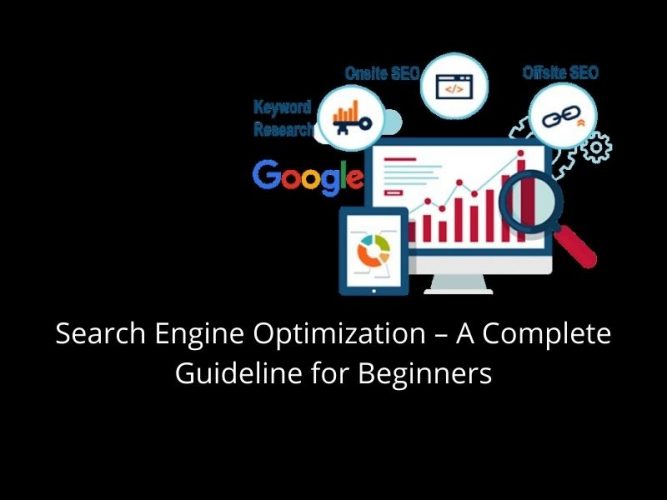







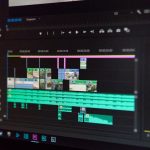
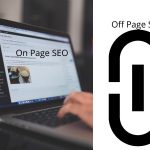

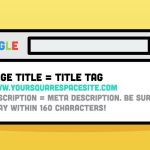

Pingback: Search Engine Optimization Bangla - SEO Bangla Blog
Pingback: 7 Ways To Improve Their Website Domain Authority - shortkro
Pingback: 7 ways to improve their website domain authoriTty
Pingback: Digital Marketing and SEO Expert in Bangladesh – shofik
Pingback: How to Rank a New Website on the 1st Page of Google in 90 Days – loyalblog
Pingback: Digital Marketing and SEO Expert in Bangladesh